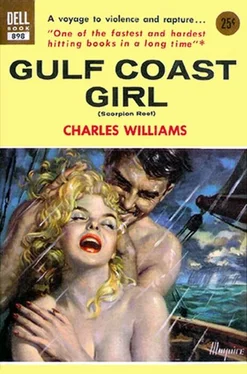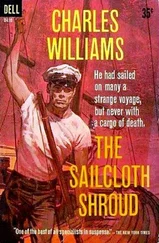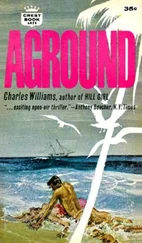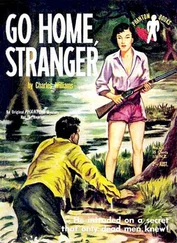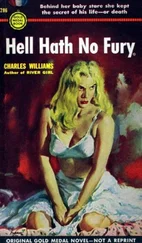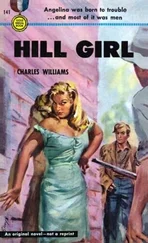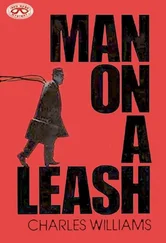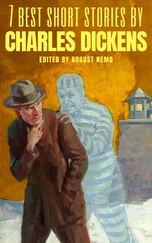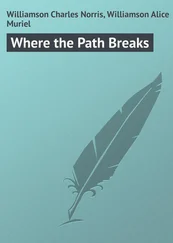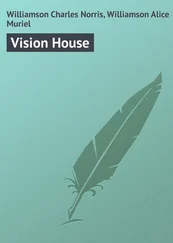Gulf Coast Girl
by
Charles Williams
1955
Sunset
There was something ghostly about it. The mate and the two ABs of the boarding party looked at each other, unable to believe what they saw.
There were no signs of violence or even sickness aboard, and the Gulf itself had been in a benign mood for weeks. Her sails were set and drawing gently in the faint airs of sunset, her tiller lashed, and she was gliding along with serene purpose on a southeasterly course which would have taken her into the Yucatan Strait. Her dinghy was still there, atop the cabin, and everything was shipshape and in order except that there was not a soul on board. She was as mysteriously deserted as the Mary Celeste .
She was well provisioned, and she had water. The two bunks were made and the cabin swept. Dungarees and some odds and ends of foul weather gear hung about the bulkheads, and in one of the bunks was the halter of a woman’s two-piece bathing suit. And subtly underlying the immemorial bilge and salt-water smells of sailing craft there still clung to the deserted cabin just the faintest suspicion of perfume. It would have gone unnoticed except that it was so completely out of place.
The table was not laid, as it had been on the Mary Celeste, but there were two mugs on it, and one of them was still full of coffee. When the hard-bitten old mate walked over and put his hand against the coffeepot sitting on one burner of the primus stove, it was slightly warm to the touch. There had been somebody here less than an hour ago.
He went over to the small table where the charts were and opened what he took to be the logbook, flipping hurriedly through to the past page on which anything was written. He studied it for a moment, and then shook his head. In forty years at sea he had never encountered a log entry quite like it.
. . . the blue, and that last, haunting flash of silver, gesturing as it died. It was beckoning. Toward the rapture. The rapture . . .
Before he closed the book he took something from between the pages and stared at it. It was a single long strand of ash-blond hair. He shook his head again.
“Holy Jesus, Mate, look at this!” one of the seamen exclaimed behind him.
The mate turned and the man was holding open a black satchel that had been lying on one of the settees. He stared. It was jammed with green blocks of American currency, paper-banded sheafs of twenties, fifties, and hundreds. What next? he thought.
“Salvage, man, salvage,” the AB said ecstatically. “Must be a hundred thousand—”
“You want to spend it now, or wait till the court counts it?” the mate asked. “You’re pretty far from a gin-mill out here, anyway.” He took the bag from the other’s hands and snapped it shut.
Sticking the logbook under his arm, he jerked his head for the two to follow him back on deck. He jabbed a forefinger toward the mast.
“See that big rag up there? It’s known as a sail. We used to drive ships with ‘em. So if you’ll start pulling it down and just sort of bundling it up, I’ll go back to the ship where I won’t have to torture myself by watching how you do it, and we’ll pass down a towline.”
A few yards away in the red sunset the master of the American tanker Joseph H. Hallock waited on her bridge while the mate pulled back alone. He saw the two sailors begin taking in the sloop’s mainsail and jib and, realizing what that meant, directed the bos’n to break out a line and start getting it over.
Outward bound from Tampico for Bayonne, they had come up behind the small craft on a converging course some half hour ago and had hauled up a point or two to pass astern of her. The mate, watching through the glasses, had noted there was no one on deck and that the helm was lashed, but had not been greatly concerned. In weather like this a man sailing alone could well have gone below to cook supper. But when no one had come on deck in answer to the bull-throated hail of the whistle, he had called the master.
Swinging, they had come back, easing up close aboard her to windward and blanketing her sails. When no one came on deck then, with the headway off her and the mainsail slatting idly as she came about, they had acknowledged there was something ominous about it. Backing down fast on the engines to remain there and hold her captive, they had put over the work boat to investigate. There was no need to launch a lifeboat. It had been flat calm for days, and the slight breeze which had sprung up in the afternoon was scarcely enough to ripple the gently heaving pastures of the Gulf.
Freya, of San Juan, P.R., it said under her stern, and the master of the tanker studied her curiously while he waited for the mate to come back to the bridge. She was a long way from home. He wondered what she was doing this far to the westward, in the Gulf of Mexico, and why a small boat from Spanish Puerto Rico should have been named after a Norse goddess.
The mate came up on the bridge carrying the big ledger and the satchel. “Sick?” the captain asked. “Or dead?”
“Gone,” the mate said, with the air of a man who has been talking to ghosts without believing in them. “Just gone. Like that. Remember the Celeste?
“Two of ‘em, as near as I can figure it,” he went on, sketching it tersely. “A man and a woman. One or both of ‘em was there not over an hour ago.”
“Well, as soon as you get that line on her we’d better go back and see,” the captain said. “Anything in the log?”
“Gibberish,” the older man replied. He passed over the book, and then the satchel. “Take a gander in that, Cap. Whatever was botherin’ ‘em, it wasn’t financial trouble.”
The captain pursed his lips in a silent whistle as he opened the bag to stare briefly and incredulously at the bundles of currency. He looked outward at the Freya, where the men were making the towline fast, and frowned thoughtfully. Then he opened the big journal at the page the mate indicated and read the last entry.
He frowned again.
The rapture . . . the rapture.
Something nudged gently at his mind. He groped for it, and found it. He was a studious and reflective seafaring man who had read Conrad, and the thing which had struck him was the odd, reverse-English similarity to Kurtz’s agonized death cry in The Heart of Darkness . “The horror. The horror.”
Flipping back, he hurriedly read the last five or six pages of the handwritten journal. Then he closed it gently and walked to the wing of the bridge to stand looking down.
“When you get your men aboard,” he said slowly, “you can resume your course, Mr. Davidson.”
“We’re not going back?” the mate asked incredulously.
The captain shook his head. “There’s nothing to go back for.”
“But, Cap—That coffee was still warm. And she couldn’t have been logging over two knots. We might find ‘em.”
“No.” The captain gazed back over the flat surface of the sea that was red now in the afterglow. “No. You’d find nothing. Nothing at all.”
But in the end, of course, they did go back, with a lookout on the foremast with the big Navy glasses. They served the sea, and the sea demanded it. And they found nothing but the empty and darkening prairies of the Gulf.
When there was no longer any light at all and they had given up and resumed their course, the captain counted the money in the presence of two of the ship’s officers and locked it in the safe. It came to eighty-three thousand dollars. Then he sat down alone in his office and opened the journal again.
He pulled the long strand of ash-blond hair through his fingers and held it up to the light. Freya, he thought musingly; Freya, the Viking goddess of love . He wished now he had boarded the sloop himself. The mate was a superb sailor, and intelligent, with a sharp eye for detail and clues in a thing like this, but he wasn’t a particularly sensitive man.
Читать дальше
